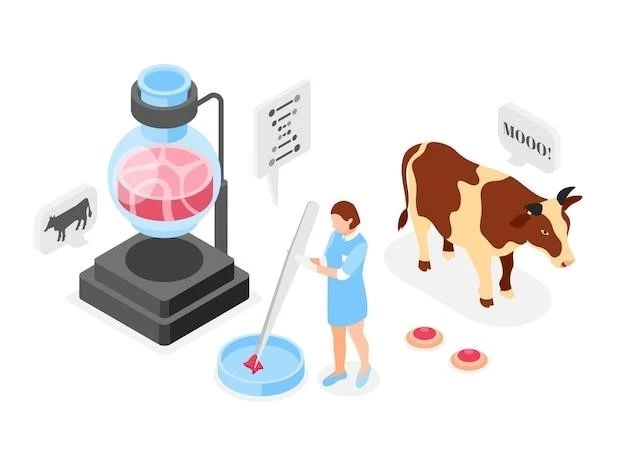Introduction
The deficiency of NADH CoQ reductase is a complex disorder affecting energy metabolism. Understanding its implications is crucial for proper management and treatment. Learn more below.
Overview of Disease⁚ NADH CoQ reductase, deficiency of
Patients with NADH CoQ reductase deficiency experience a broad spectrum of symptoms related to disrupted energy metabolism. This rare genetic disorder affects mitochondrial function and can lead to mitochondrial encephalomyopathy. The complex mechanisms of CoQ deficiency play a crucial role in the manifestation of clinical symptoms. Understanding the genetic mutations and inheritance patterns associated with this condition is essential for accurate diagnosis and appropriate management strategies. Ongoing research continues to shed light on the underlying pathophysiology of NADH CoQ reductase deficiency and explore potential treatment options.
Clinical Presentation
Presentation of NADH CoQ reductase deficiency includes a spectrum of symptoms linked to disrupted energy metabolism. Recognizing these signs is crucial for timely diagnosis and appropriate care.
Symptoms and Signs of the Disease
NADH CoQ reductase deficiency can present with a spectrum of symptoms such as progressive hypokinetic-rigid syndrome, signs of central nervous system involvement, and defects in cellular bioenergetics; Recognizing these manifestations is crucial for early detection and appropriate management strategies.
Genetic Basis
Understanding the genetic mutations and inheritance patterns associated with NADH CoQ reductase deficiency is crucial for accurate diagnosis and treatment. Stay informed about the complex genetic basis of this condition.
NADH CoQ reductase deficiency is associated with various genetic mutations affecting mitochondrial function. Understanding the inheritance patterns, such as autosomal recessive or X-linked dominant, is crucial for genetic counseling and diagnosis. Stay informed about the complexities of genetic factors underlying this condition.

Diagnostic Approaches
Accurate testing and diagnosis of NADH CoQ reductase deficiency are crucial for appropriate management. Stay informed about the diagnostic approaches available to identify this complex disorder effectively.
Inheritance Patterns and Genetic Mutations
The genetic mutations associated with NADH CoQ reductase deficiency play a vital role in the inheritance patterns of this condition. Understanding the autosomal recessive or X-linked dominant inheritance is essential for genetic counseling and personalized management strategies. Stay informed about the genetic basis of this complex disorder.
Pathophysiology
Understanding the mechanisms of CoQ deficiency is crucial in grasping the complexities of NADH CoQ reductase deficiency. Explore the intricate pathways involved in CoQ biosynthesis and the impact on cellular bioenergetics.
Understanding the Mechanisms of CoQ Deficiency
The intricate pathways associated with Coenzyme Q (CoQ) biosynthesis play a critical role in the development of NADH CoQ reductase deficiency. Exploring the complex interactions involved in the biosynthetic process sheds light on the pathophysiology of this disorder and its impact on cellular bioenergetics. Stay informed about the detailed mechanisms underlying CoQ deficiency to enhance understanding and management strategies.

Treatment Options
Exploring management and therapeutic interventions for NADH CoQ reductase deficiency is essential. Stay informed about the latest advancements in treatment options to address this complex disorder effectively.
Management and Therapeutic Interventions
Exploring the diverse therapeutic interventions and management strategies for NADH CoQ reductase deficiency is crucial for enhancing the quality of life for individuals with this condition. Understanding the latest advancements in treatment options, from antioxidant therapies to potential gene therapies, can help individuals and healthcare providers navigate the complexities of this genetic disorder effectively. Stay informed about the evolving therapeutic approaches to optimize care for those affected by NADH CoQ reductase deficiency.
Research and Studies
Stay informed about the latest research and ongoing studies focusing on NADH CoQ reductase deficiency. Explore current findings and advancements in the field to understand the complexities of this rare genetic disorder and potential breakthroughs in treatment.
Current Findings and Ongoing Research on the Disease
Recent studies have highlighted the genetic heterogeneity and biochemical complexities of NADH CoQ reductase deficiency, emphasizing the importance of early diagnosis and targeted interventions. Ongoing research focuses on elucidating the pathophysiology of the disorder, exploring novel treatment modalities, and improving patient outcomes. Stay updated on emerging findings in the field to enhance the understanding and management of this complex genetic condition.
Prognosis and Outlook
Understanding the long-term outlook for individuals with NADH CoQ reductase deficiency is essential for managing this condition effectively. Stay informed about the prognosis and potential advancements that may impact the quality of life for those affected by this genetic disorder.
Long-Term Outlook for Individuals with NADH CoQ Reductase Deficiency
Understanding the long-term prognosis and outlook for individuals with NADH CoQ reductase deficiency is essential for comprehensive care and management planning. Stay informed about the latest advancements in research and treatment options to improve the quality of life for individuals affected by this complex genetic disorder. Regular monitoring and proactive interventions can positively impact the long-term outcomes for individuals with NADH CoQ reductase deficiency.
